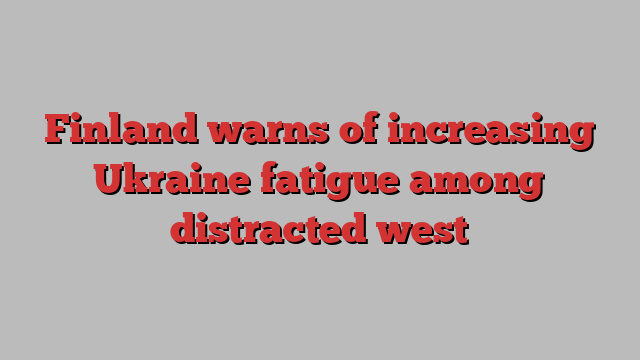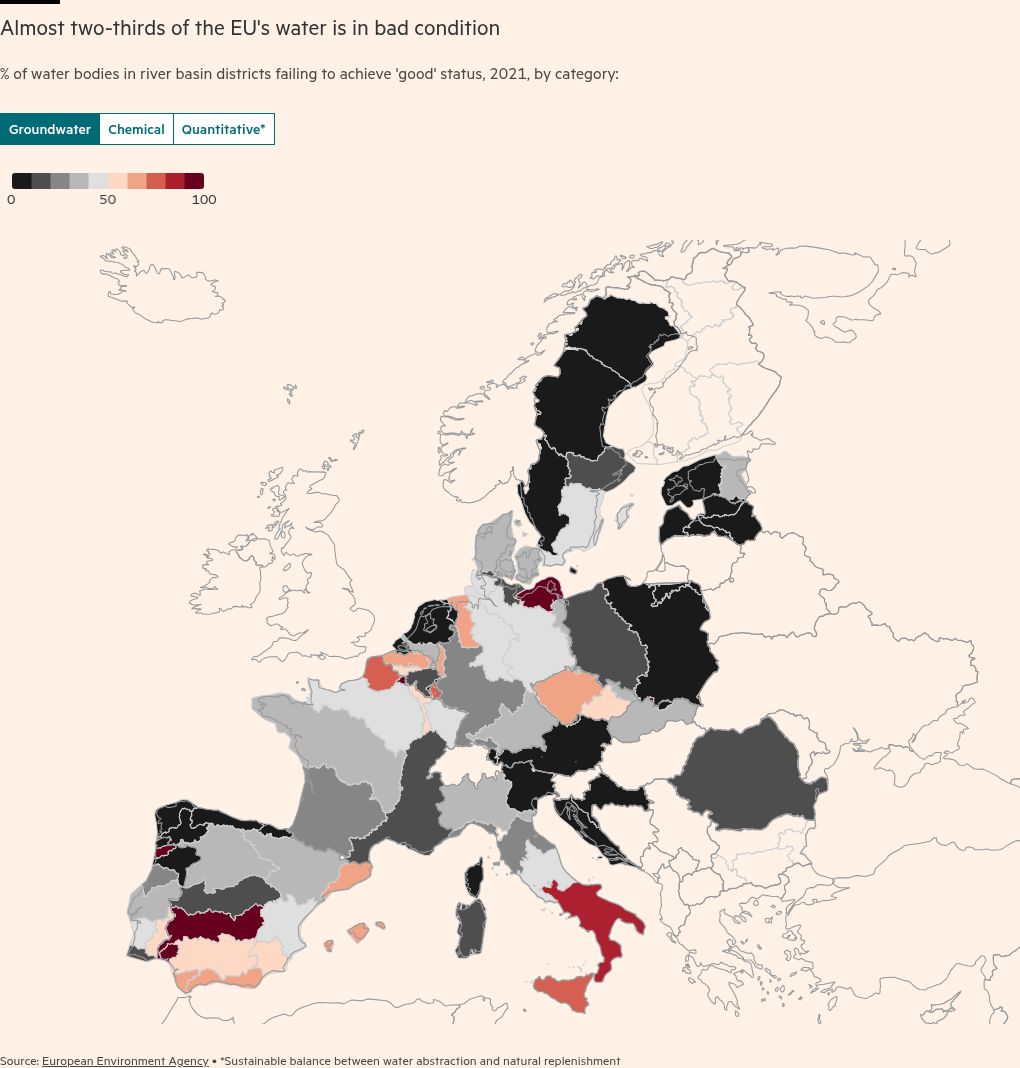
This article is an on-site version of our Europe Express newsletter. Premium subscribers can sign up here to get the newsletter delivered every weekday and Saturday morning. Standard subscribers can upgrade to Premium here, or explore all FT newsletters
Good morning. News to start: EU countries have invited Britain to participate in the bloc’s peacekeeping missions around the world, in a tangible step to demonstrate shared ambitions to increase co-operation between London and Brussels on security issues.
Today, Finland’s foreign minister warns me of the dangers of rising fatigue among western states regarding assistance to Ukraine, and our Rome correspondent reports on the fallout from Italy’s first migrant boat being outsourced to Albania.
Ukraine fatigue
Western states are tiring in their support for Ukraine and increasingly hoping for some form of conflict resolution, Finland’s foreign minister has warned, as she urged her colleagues in western states to redouble their efforts to help Kyiv.
Context: Russia launched its full-scale invasion of Ukraine in February 2022 and President Vladimir Putin has vowed to maintain the war of attrition in the country’s east. Some western officials have begun privately discussing ways to reach a ceasefire despite Putin’s troops occupying about a fifth of Ukraine’s territory.
“It’s real,” Elina Valtonen said of western fatigue. “And increasingly so.”
She said the ongoing conflict in the Middle East had diverted both attention and resources, and for example dominated discussions at the recent UN General Assembly last month.
“These two conflicts are, of course, very much linked, but for us Europeans it would be important to realise that if we allow Russia to win in Ukraine, then essentially we end the credibility of our deterrence,” she said.
“There is support for Ukraine, but what is sufficient? That is the question,” she said. “Quite many [countries] would like to think, since especially with the war waiting in the Middle East, it would be great if we found an answer to this war that Russia is waging.”
Valtonen said western countries also needed to tighten up sanctions designed to hurt Russia’s economy, particularly Moscow’s growing “shadow fleet” of uninsured oil tankers used to circumvent restrictions on lucrative crude oil sales.
“These uninsured and low-quality vessels are circumventing the price cap but they also really jeopardise . . . the environment, especially in the Baltic Sea which we actually are really worried about. So definitely more should be done,” she said.
Finland, Denmark and other Baltic Sea states are in ongoing discussions over ways to tighten sanctions related to the shadow fleet, but rules of maritime passage mean blocking Russian ships transiting the key straits would be against international law.
Valtonen said more ships and related entities would be added to sanctions lists, and that Brussels should also target financial institutions that were facilitating transactions involving the trade.
“It’s really a true worry, now especially with the Baltic Sea freezing in the winter,” she added. “It just increases the risk of accidents and incidents.”
Chart du jour: Not a drop to drink

Water scarcity affects a fifth of EU land and almost a third of its population each year, according to the biggest survey yet of the state of the bloc’s water, despite popular perceptions of the continent as a rainy region.
Meloni, triggered
Italy’s prime minister Giorgia Meloni has engaged in a heated social media argument with German NGO Sea Watch as it accused her government of wasting Italian taxpayers’ money on a controversial deal to bring asylum seekers to Albania, writes Giuliana Ricozzi.
Context: Rome and Tirana agreed last year to build two centres in Albania where male asylum seekers rescued at sea could wait for their claims to be processed. After months of delays, the facilities opened their doors yesterday as the first ship carrying 16 men from Bangladesh and Egypt departed for the Albanian coast.
The centres have a maximum capacity of 3,000 people. The scheme, under which Italy plans to process 36,000 asylum requests per year and repatriate migrants whose claim is rejected, has drawn fierce criticism from Italy’s opposition parties and NGOs over potential human rights violations and high costs.
The project, aimed at deterring migrants’ departures and described by Meloni as an investment, is estimated to cost €800mn over five years, according to Italy’s interior minister.
On Sunday, Sea Watch blamed Italy’s government for “spending hundreds of millions of taxpayers’ money to deport and imprison a few thousand migrants in Albania”, suggesting that Italians’ taxes could “be better spent to welcome and include rather than reject”.
“What a scandal!” Meloni lashed out in an unusual reply under the NGO’s post on X, adding that her government “is working to defend Italian borders and stop human trafficking, through concrete actions and international agreements”.
Since the beginning of 2024, about 53,000 irregular migrants have arrived in Italy by sea, down from 140,000 in the same period last year.
What to watch today
-
EU general affairs ministers meet.
-
EU energy ministers meet.
-
Germany releases its latest Zew survey, a key gauge of investor sentiment.
Now read these
Recommended newsletters for you
Trade Secrets — A must-read on the changing face of international trade and globalisation. Sign up here
Swamp Notes — Expert insight on the intersection of money and power in US politics. Sign up here
Are you enjoying Europe Express? Sign up here to have it delivered straight to your inbox every workday at 7am CET and on Saturdays at noon CET. Do tell us what you think, we love to hear from you: [email protected]. Keep up with the latest European stories @FT Europe